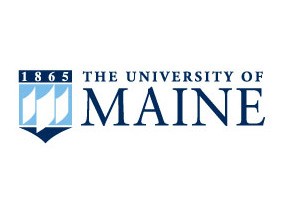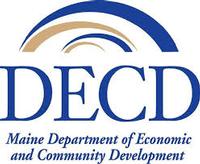Maine students and teachers enjoy unprecedented access to technology to help them teach and learn, thanks to the Maine Learning Technology Initiative (MLTI).
In 2002, under the leadership of then-Governor Angus King, Maine became the first state to provide a personal portable computer device to each 7th and 8th grade student and teacher, along with the software, wireless networks, technical support, and professional development needed to effectively use the technology for teaching and learning.
The program has changed somewhat over the years, but the goal remains the same: to provide State support for access to technology-enhanced educational experiences for all students. In the 2018-19 school year, the State helped over 300 schools obtain educational technology and the professional learning necessary to take advantages of all that technology offers.
Read more about the groundbreaking MLTI program on the MLTI History page.
![]()
We sought inspiration from the Maine Department of Economic & Community Development (DECD), which published its Maine Economic Development Strategy in December.
The report considers Maine’s historical and available strengths and resources, and focuses on “talent and innovation” as the cornerstone strategies for Maine’s evolution over the next decade. We embraced these notions as illustrations of “Looking Backward, Looking Forward” and incorporated them into our conference strategy. The MLTI Student Conference may be one of the strongest examples of “talent and innovation” in Maine.
According to the DECD report, by 2030, Maine will be an international leader with a vibrant, sustainable, environmentally-responsible economy.
All across the state, the people of Maine will have access to an unmatched quality of life and good-paying jobs. The primary strategies to achieve the 2030 vision are to grow local talent, attract new talent, and develop hubs of excellence. Thus, our final approach and plan for the 2020 MLTI Student Conference is to make it an “Innovation Challenge”, one that unifies DOE and DECD interests by fast-tracking the development of MLTI participants into social entrepreneurs and change agents through education and technology.

The Maine Department of Education, in collaboration with educators, schools, districts and communities Statewide, strives to provide all Maine students access to educational experiences, PreK through adult, that lead to their success in life and career.
Led by Commissioner Pender Makin, the Maine DOE is an agency of the State of Maine that administers both state education subsidy and state and federal grant programs; coordinates the authoring of the rules for Maine State education statutes passed by the Maine State Legislature; provides professional development, information, supports and resources, as well as a system for educator credentialing; and leads many collaborative opportunities and partnerships in support of local schools and districts.
With students at the center of every decision, the Department's goal is to promote educational experiences that engage and challenge every student by providing individualized learning opportunities that enhance student learning, and increase student achievement.

Founded in 1865, the University of Maine is a land, sea and space grant institution, and the flagship campus of the University of Maine System.
Located in Orono along the banks of the Stillwater River, this vibrant and dynamic university serves Maine, the nation, and the world through its teaching, research and outreach mission. UMaine students come from every county in Maine, more than 49 other states and 62 countries. UMaine offers more than 100 degree programs through which students can earn graduate certificates, master’s, doctoral or professional science master’s degrees. Opportunity for all members of the University of Maine community and its constituents is a cornerstone of our mission.
UMaine at Orono traditionally hosts the MLTI Student Conference on its campus. The university also generously grants $10,000 in scholarships to several MLIT students each year in recognition of their achievements at student conference. While the 2020 conference moved to a virtual format, UMaine still committed $10,000 in scholarship awards to students.

The Administration of Governor Janet Mills has created Maine’s first formal ten-year strategic economic development plan for the State of Maine.
The initiative, which will be led by the Department of Economic and Community Development (DECD), in partnership with other government agencies, business leaders and private organizations, will focus on strategies to enhance economic growth, particularly in rural Maine, and address Maine’s workforce challenges. The strategic plan will be the first of its kind in more than two decades, and its vision and goals serve as the inspiriton for the MLTI 2020 Student Conference Innovation Challenge.

Based in New York and London, CATES is a mission-driven education and social innovation company that serves a growing national and international audience.
Founded in 2002 by Maine resident Chris Ajemian, CATES has worked closely with families, schools, and nonprofits to design and support personalized learning programs that maximize students’ potential in academics, test prep, admissions, education planning, and careers.
Working at the intersection of the public and private sectors, CATES explores partnership opportunities to scale its services, insight, and expertise with a wider audience through media, technology, and face-to-face instruction, helping to bring diversity and equity to learning and the work force. For almost 20 years, CATES has helped thousands of students from all over the world earn admission to best-fit American colleges with more than $100M in financial aid as well as top job placements in various industries.
In 2020, CATES partnered with Maine DOE to design, develop, and present the MLTI Virtual Student Conference.